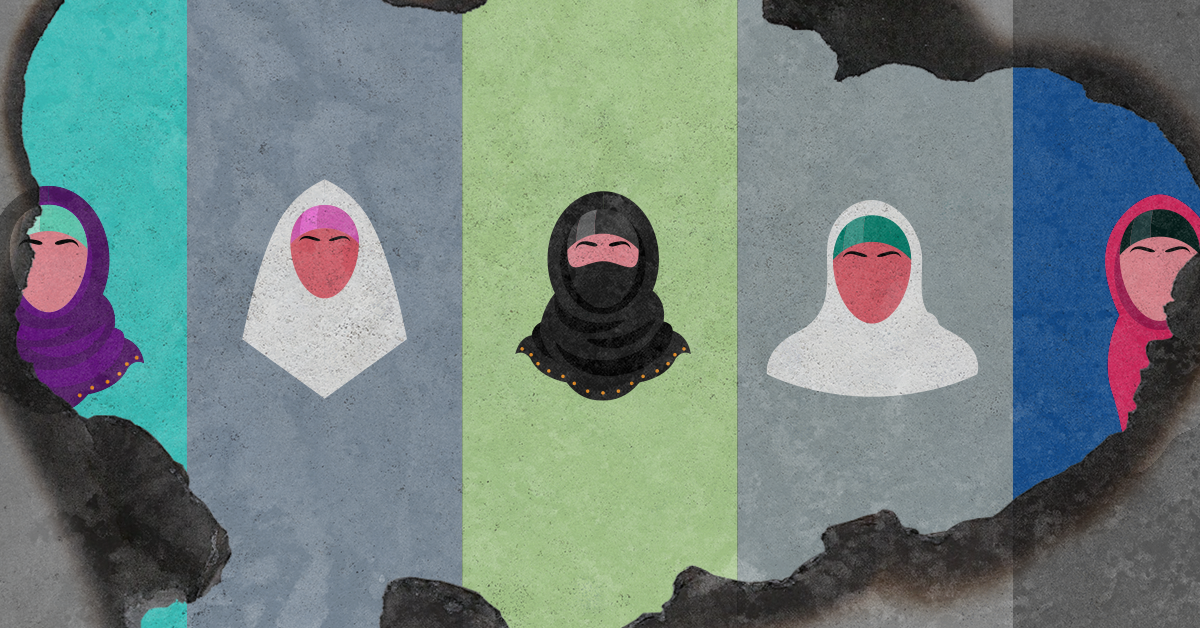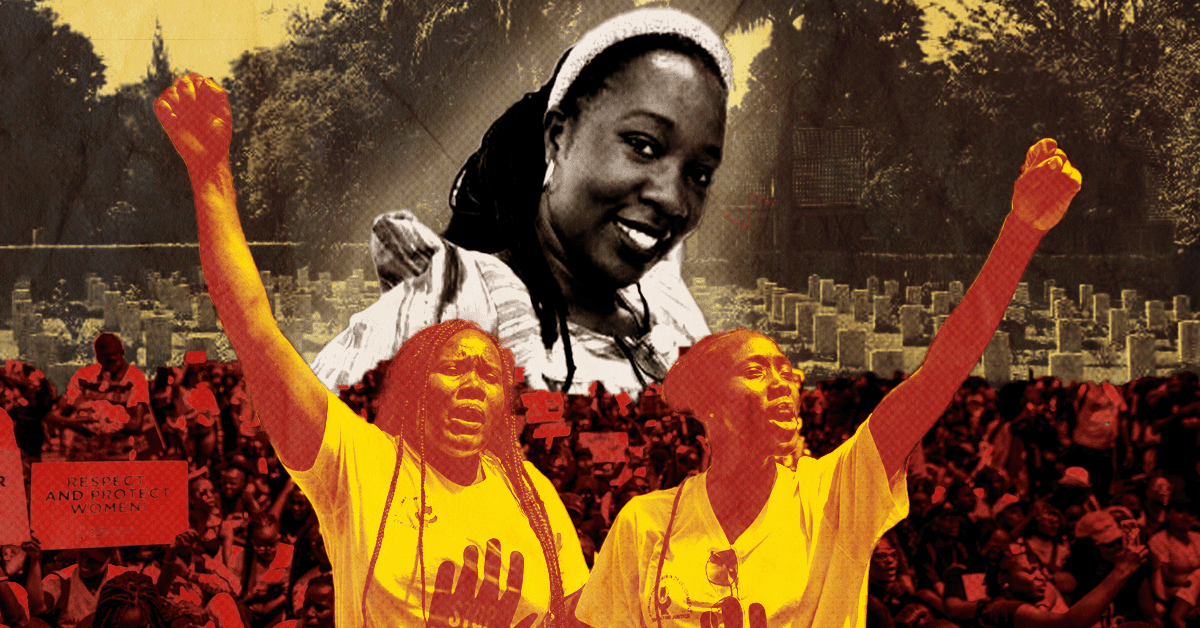Hijabi Discrimination In Nigeria Makes Navigating The Workplace Difficult for Muslim Women
- The hijabi places Mulsim women under scrutiny within the workplace and creates harmful toxic work environments.

“Do you always wear that?”
“That thing on your head is not professional.”
“Your hair must smell so much under all of that.”
“Do you think that makes you better than everyone else?”
“You can remove it while you are at the office, your father/husband won’t know.”
Every Muslim woman who wears a hijab, headscarf, or any form of clothing that covers her hair has at some point or the other had to deal with passive-aggressive comments about their headwear. Often, the comments veer into being incredibly cruel and unsavoury. Workplaces are meant to be free from personal biases and prejudice, but many Muslim women have been stripped of access to jobs or economic opportunities based on their visible dedication to their faith.
The image of a Muslim woman, especially a woman of colour in a hijab, sometimes referred to as ‘hijabis’ is viewed through the lens of oppression. Harmful stereotypes and lack of proper representation in many media strongly influence the oppression of hijabis.
Professional hijabi Muslim women are wrongfully perceived as subservient and devoid of full agency over their life and career. In Nigeria, where women are already a minority, a Muslim woman who devoutly wears her hijab faces double scrutiny and significant discrimination. Hijabis in professional spaces have confessed to the feeling of either being patronized, heavily scrutinized or a sense of erasure.
Monsuroh, a lawyer in Lagos, Nigeria says that being overlooked or underestimated is a feeling she has sadly gotten used to. “When I was job-hunting, the interview stage always made me anxious,” she says. “Once I walked in and the interviewer(s) saw my hijab and long dress, I could feel the energy in the room change. A prospective employer once asked me if my husband would not interfere if the nature of my job got too demanding. When I answered in the negative, he chuckled and said he didn’t want any ‘alhaji’ to appear and cause a scene in the office. All the personal questions he asked insinuated that he believed that I had very little to no agency over my affairs.”
There is a clear issue of hijabi women being perceived as liabilities in professional spaces. The hijab, which is meant to signify devoutness to Islam, is now seen as a waving flag for passiveness and weakness. A 2016 report on women and equality highlighted that Muslim women face triple penalties in the labour market. They were discriminated against for being women, for being ethnic women and for being Muslim women. Of all three, the penalty for being a Muslim woman seems to be the costliest.
Aisha, an executive in an entertainment and media company, had to retire her headscarf when she got to the interview stage for a competitive role at her dream agency. “I knew the minute that I got the invite email that I would take my scarf off,” she says. “I won’t be dishonest and claim that it was a difficult decision because I actually don’t cover my hair all the time, I just have a scarf on my head or draped casually on my shoulders or neck out of habit. And I knew for sure that presenting myself like that, for that kind of role in that agency, would put me at a disadvantage and I probably wouldn’t have gotten the job. They would have simply assumed that my activeness and dedication to my job would be limited.”
Interrogating the basis of these biases and prejudices can be tricky. Despite the rise and evolution of feminism in Nigeria and how it has helped many Nigerian women—and a sprinkle of men—demand a more inclusive treatment of women, Nigerian households are still mostly patriarchal.
The major issue, it seems, lies in many non-Muslims’ beliefs about what the hijab represents and the decisions that lead women to wear it. For Muslim women, the hijab serves to protect their bodies upon puberty from the lustful gaze of the outside world. “A useful distinction I like to make to people is that my hijab is meant to shield my body, not hide it,” says Khadijah, who has worn the hijab since she graduated from secondary school and resumed university. “My mom has worn her hijab all my life, and while it was expected that I would wear it when my body began to visibly change, no one tried to force me. I decided to start covering up after I gained admission to the university; it was a new phase of my life so it made sense to start a new journey as a new version of myself.”
However, not every Muslim woman who wears the hijab had Khadijah’s experience or her capacity to make her choices. Muibah, who no longer wears the hijab, says that she doesn’t remember a time when she was allowed to leave the house without her hair covered. “While I understand why the hijab is important, I hated that I had no choice in it,” she says. “I stopped covering my hair as soon as I moved out of my parent’s house and to a new city. I might still wear it again, but I honestly don’t know.”
It is important to remember that, while many hijabis don the hijab because they are compelled to by authority figures in their homes or communities, many other women do so voluntarily as a physical manifestation of their faith. Denying or limiting opportunities to qualified hijabis based on how they are perceived because of their hijabs is therefore an islamophobic act against the person and an infraction of their fundamental human rights.
Another overlooked pattern of hijabis being treated differently in workplaces is a form of benevolent islamophobia where visibly Muslim women believe that they were offered opportunities to fulfil some sort of diversity quota, and not as an acknowledgement of their capabilities or successful experience in their fields. Ayooluwa, a journalist, shares that she cannot complain about her hijab being a hindrance to her career. However, she often worries if the many speaking engagements and successes that her work has garnered are only because she strikes an unusual image.
“It’s hard to explain but there’s a particular sort of attention that I’m paid by people that unsettles me,” she says. “I’ve spoken in spaces and worked in some environments where the shock and amusement at the brilliance of my work is too apparent, it feels insulting. It makes me wonder if the celebration of my career so far is really because my work is so outstanding, or [if] it is because the community is so fascinated that a young hijabi woman like myself [have]undertaken the kind of projects that I have and succeeded at them.”
Hijabis, regardless of how similar they may look on the outside, are not homogenous and each has their own sense of identity outside of their faith. It is therefore not only disingenuous to treat all women who cover their hair the same, but it is also harmful when this pattern manifests itself as a preconceived bias and leads to hijabis being treated dismissively in professional spaces
People who find themselves in the position to offer employment or other economic opportunities or benefits are encouraged to be more culturally aware and inclusive in their vetting processes, as opposed to wrongfully dismissing candidates because of what they assume their hijab represents.
Edited by Cassandra Roxburgh and Uzoma Ihejirika






